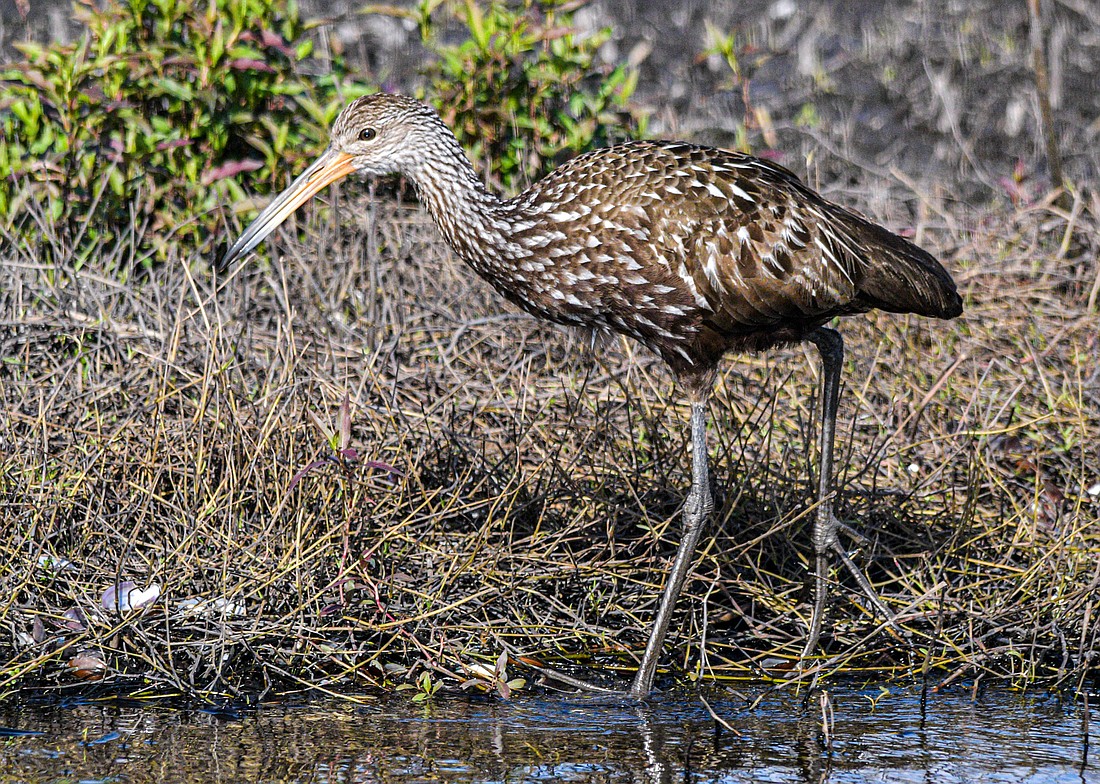- February 5, 2026
-
-
Loading

Loading

Limpkins are sizable wading birds with a gait all their own: They look like they're limping, as they
slowly walk across the undulating surfaces of their wetland habitats, in an uneven manner.
Limpkins forage by walking through shallow water, visually searching for food. They also use their bill to probe about in mud and vegetation. Though they'll eat a variety of aquatic mollusks, limpkins are especially partial to apple snails. And, to help remove this favorite food from its shell, their long bill is bent and slightly curves to the right at the tip, making it easy to slip into the right-handed chamber of an apple snail shell.
And, when closed, their bill has a gap just before the tip, which functions like a pair of tweezers.
Their apple-snail diet also determines where limpkins live. Historically, Florida has been their northern limit, mirroring the small range of our only native apple-snail. However, in the 1980s, a number of apple snail species, native to Central America and South America, escaped or were released from aquariums in Southern Florida and quickly began spreading north.
Perhaps following the snail trail, in recent years limpkins have extended their range as far north as Louisiana and Georgia.
In the early 1900s, limpkins, like white ibis, were hunted as popular game food, almost to the point of extinction. They recovered thanks to conservation efforts and legal protection. However, habitat loss and fragmentation due to development remains a threat. And, as the freshwater wetlands the limpkin relies upon are highly vulnerable to sea level rise and salt water encroachment, climate change is also of great concern.
Save our Seabirds is a non-profit organization whose mission is to rescue and rehabilitate sick and injured birds, releasing as many as they can, while educating our community about avoiding injuries and preserving habitats.